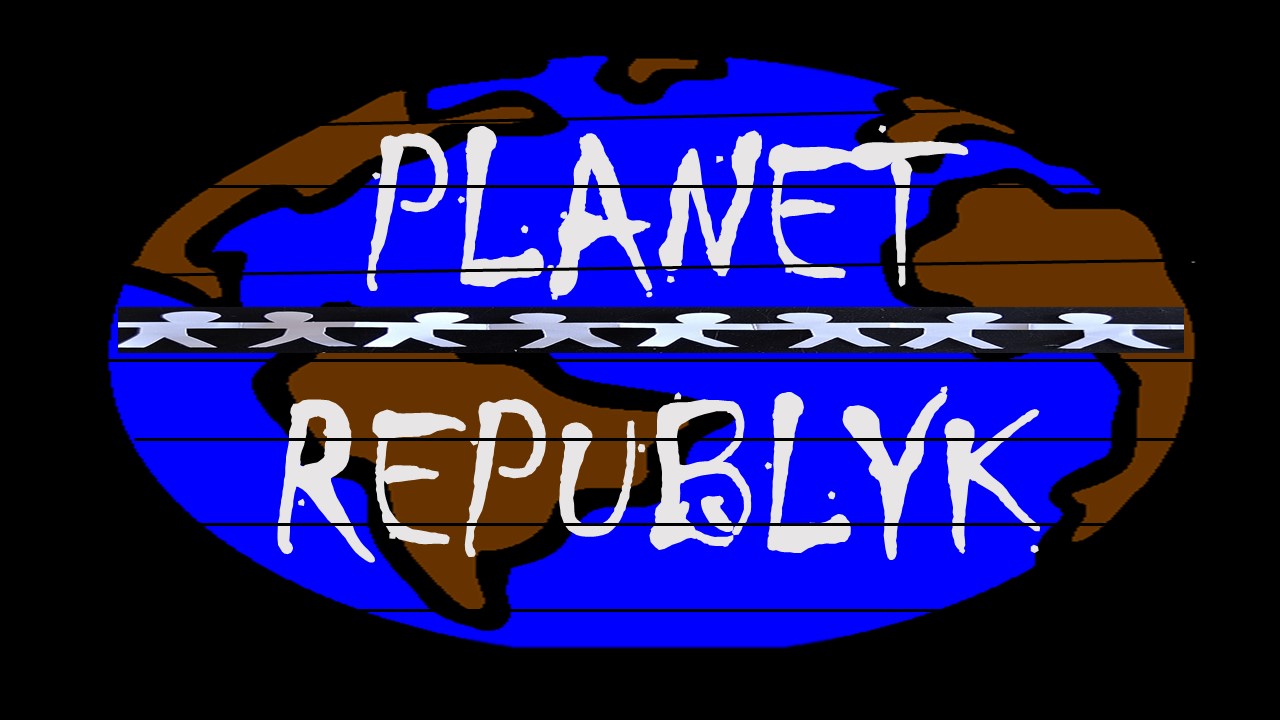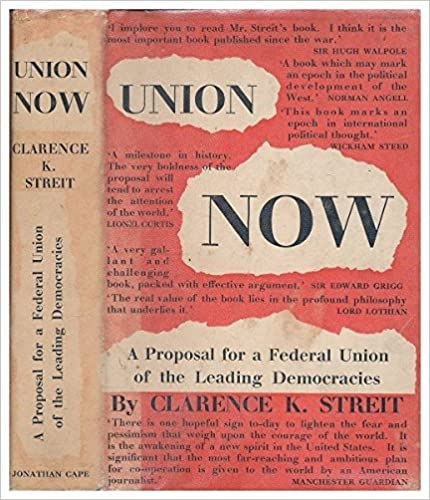Part 2: Chapter 8: Inter-war period heroes
- Planet Republyk

- Feb 22, 2022
- 7 min read
Updated: Mar 10, 2022
Dernière mise à jour : il y a 10 heures
How to check "Save the World" off your bucket list?
Welcome to Chapter 8 of the Planet Republyk project!
___________________________________________________
History of the planetarist movement, part 3
Because this story is also ours.
Because it is not well known.
Because it should be taught in our schools in the same way as national history.
____________________________________________
Interwar period heroes
Our planet is now too small to perpetuate parochial patriotism
Sarvepalli Radhakrishnan
The prospect of another world conflict leads to the appearance of associations wishing to promote bridges between human beings rather than the divisions offered by the exacerbation of nationalisms, the air of the times.
In 1922, Henri Léon Follin promotes the Universal Republic of Supranation in a small 66-page manifesto entitled The Conditions of an Individualistic and Supranational Movement.
The admonitions for a planetary governance were until then pleas of intellectuals. In 1924, two women changed the situation. Disappointed with the failures of the League of Nations, they took the idea out of the books and the salons of the aristocracy and into the streets.
Rosika Schwimmer and Lola Maverick Lloyd, both feminist and pacifist activists, created in the United States one of the first citizen activist organizations in the world aiming at the establishment of a world government. This could be accomplished, they argued, through federalism of nations and a constituent assembly of peoples.
They support their idea in Chaos, War or a New Peace Order. In 1937, they launched a campaign in Chicago to promote a World Constituent Assembly whose members, elected by the peoples of the world, would draft a world constitution.

Rosika Schwimmer is a major world figure of the feminist, pacifist and internationalist movement of the first half of the 20th century. This great lady, determined, brilliant and cunning, when necessary, will remain in the shadow of world history with a capital "H" perhaps only because she was a woman.
Hungarian by birth, the uncompromising activism of this journalist, writer, diplomat and suffragette forced her to immigrate permanently to the United States where this same activism prevented her from obtaining American citizenship until her death.
In 1914, she undertook a major lecture tour of the United States to raise awareness of the pacifist movement. Lola Maverick Lloyd attended one of these conferences. The two women became inseparable friends and activists until Lloyd's death in 1945.
Schwimmer may have planted the seed for President Woodrow Wilson's internationalist streak, which he seemed to have little interest in until his meetings with her in 1914. In this, Wilson did not differ from his predecessors, who were also followers of the "inward-looking" doctrine of former American president James Monroe.

In 1915, in the midst of the conflict, the two women participated, within the International Alliance for Women's Suffrage, in the organization of a courageous International Congress of Women for Peace in The Hague where more than 1200 delegates from 12 countries discussed proposals to end the First World War through negotiation.
That same year, they succeeded in convincing the automobile industrialist Henry Ford to charter a "peace ship" in an attempt to initiate peace talks between the leaders of the European belligerent countries.
Schwimmer was awarded the World Peace Prize in 1937. In 1948, she was nominated for the Nobel Peace Prize. In memory of the apostle of non-violence, Gandhi, assassinated that year, the prize was not awarded.
There is no nationalist streak in me, only an acute awareness of belonging to the larger human family.
Rosika Schwimmer

In 1938, echoing the efforts of Schwimmer and Lloyd, and under the impetus of two diplomats, Salvador De Madariaga and Henri Bonnet, both ex-colleagues of the League of Nations and cosmopolitan expatriates, World Foundation was created simultaneously in England and the United States(World Citizens Association). The organization would establish its headquarters in the United States in 1939.

At the same time, fueled by the same concern for the resurgence of a world conflict, the first associations of world citizens emerged. The first to use the nomenclature was the Londoner Hugh J. Shonfield, who in 1938 proposed his "Commonwealth of World Citizens". In 1956, a Constituent Assembly was convened which decreed that the organization was a nation without territory of which anyone could become a citizen as long as he or she adhered to the seven founding principles: no one is an enemy; no one is a stranger; to be at the service of all; to strive for total impartiality; to work for peace, for the establishment of a true democracy as well as for equity and justice. The organization then changes its name to "Mondcivitan Republic" in the universal language Esperanto. The first world parliament of the organization was elected in 1959.

Also at the end of the 1930s, a referencial work of the globalist movement appeared: Union Now? A proposal for a Federal Union of the leading democracies by Clarence K. Streit. Streit, who became one of the most influential spokespersons for Federal Union and eventually became its director. The New York Times reporter assigned to cover the League of Nations describes a concrete blueprint for achieving world government. He states that it is a mistake "to organize the relations between democracies on the basis of the unity of the states and not of their own persons, that is to say, on the basis of the absolutist principle of nationalism and not on the democratic principle of individualism[i]".

Streit helped launch the first mundialist magazine, Liberty and Union, "the magazine of the not-yet-existent World Republic". Brilliant, eloquent and charismatic, he gave many conferences throughout the United States. His ideas will enjoy great media visibility. He met with Roosevelt and Churchill, and there is every reason to believe that he was to them what Schwimmer had been to President Wilson.

In 1949, Streit and members of Federal Union founded the Atlantic Union Committee (AUC). Through its high-level lobbying, this organization played a fundamental role in the creation and development of the North Atlantic Treaty Organization (NATO) that same year. Its activists wanted a political and, secondarily, a military federation of the mature democracies of the North Atlantic, in their eyes the first step towards a real world government, which all the nations of the world would eventually join as they matured in democracy. Instead, in the face of the growing communist threat, they will obtain a military alliance of collective defense with a derisory political power. As proof, who knows the existence of the NATO parliamentary assembly, which has existed since 1949?
Long before the fall of the USSR, Streit's emulators prepared the ground for the eventual integration of Eastern Bloc countries into NATO and the European Union. Federal Union Inc. (renamed Association to Unite the Democracies (AUD) in 1985), the Atlantic Union Committee and other offshoots of Streit's ideas such as the Council for a Community of Democracies worked tirelessly over the decades for the establishment of a real federation of the world's democracies and for ever-increasing cooperation, at all levels, of these so-called democracies. In 1950, Streit was nominated for the Nobel Peace Prize.
Unless a world government is quickly formed and effectively put into action, the whole future of mankind is dark and uncertain.
Winston Churchill

In June 1941, London was under the bombardment when it welcomed representatives in exile from nine European governments as well as those of governments allied to the British crown, including South Africa, New Zealand, Australia and Canada.
On June 12, these fifteen nations endorsed the St. James Palace Declaration in which they pledged to work together to eliminate, once and for all, the seeds of war. This was the first initiative of its kind after the failure of the League of Nations, and inaugurated a series of meetings, treaties and documents that would lead to the founding of the United Nations in 1945.
Two months later, the United States once again took up the torch of promoting international governance under the leadership of Franklin Delano Roosevelt, who was well aware that his country's isolationism had contributed to the outbursts of Japanese and German imperialism.

In August 1941, the U.S. President called Prime Minister Winston Churchill to the USS Augusta off the coast of Newfoundland. For a week, American and British teams worked on a document entitled The Atlantic Charter. It consisted of a series of eight-point moral statements on one page, more of an intention than a formal commitment.The Charter was not even signed at the time by the two heads of state. It did, however, announce the will of the two nations to preside over the establishment of a new international policy even before the official dissolution of the League of Nations in April 1946.
The historian Fernand L'Huillier sees in this charter a very strong symbolism:

"Conceived on a larger scale than Wilson's note of 1918, men now find themselves in a position not only to raise their ruins, but also to satiate the world's hunger; to revolutionize the life of the globe if they really combine their efforts[ii]."
The eighth and last article of the Atlantic Charter[iii] whose title is ''Renounce the use of violence'' is quite revealing of the ambition of the project:
They are convinced (we are speaking here of the countries that will commit themselves to signing the charter) that all nations of the world, for reasons both realistic and spiritual, will eventually have to renounce the use of violence. Since in the future there can be no lasting peace as long as nations which threaten or may threaten to commit acts of aggression outside their borders continue to have armaments on land, in the sea or in the air. They are convinced that, pending the institution of a permanent system of general security, established on a broader basis, it is essential to disarm these nations....
Can one imagine the Prime Minister of the United Kingdom and the American President endorsing such a document today? Hardly. The atmosphere at the time had to be quite exceptional.
But the kind of atmosphere that prevailed then is knocking on our door more and more loudly.
It is even about to break down the door.
That's it for chapter 8.
You will find on PlanetRepublyk.org the links to become a member, buy the book in E-book(PDF) version or make a donation.
Planet Republyk is a non-profit NGO. Please help the cause by making a donation!
We suggest a donation (if you deem the research, content and presentation worthy) equivalent to 1US$ or 1€ per chapter read.
Also, please share!
Especially to those who you think would be interested in such a topic!
[i] Clarence Kirshman Streit, Union Now? An American Proposal for a Federation of the Leading Democracies, Paris, Librairie de Médicis, 1939, p. 230.
[ii] Fernand L'Huillier, Les institutions internationales et transnationales, Paris, Presses Universitaires de France, 1961, p. 12.
[iii] Official website of the United Nations, History of the United Nations, History of the United Nations Charter, 1941: The Atlantic Charter: https://www.un.org/fr/sections/history-united-nations-charter/1941-atlantic-charter/index.html

Comments